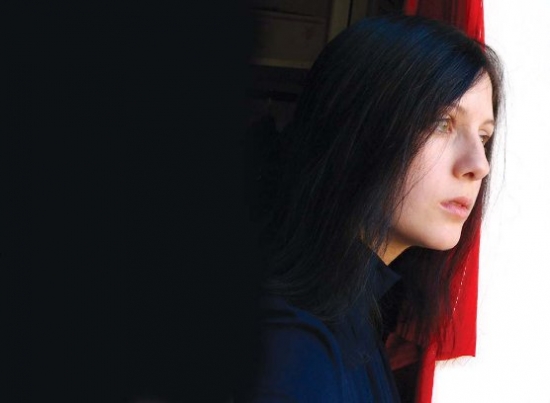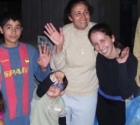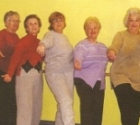
Where did all those ADHD Kids go?
You’ve probably seen him before; the highly energetic boy bouncing off the walls. He is always doing something, flitting from interest to interest, never settling down long enough to get anything done.
You’ve also possibly seen a girl, maybe in a classroom, maybe in a group, sitting staring out the window or just into space, not aware of what is going on around her.
As surprising as it may sound, these children have many of the same characteristics and are given the same diagnosis: Attention Deficit/Hyperactivity Disorder (ADD/ADHD). Experts more or less agree that up to 5% of children in Israel meet the diagnostic requirements for ADHD.
The past decade has seen a tremendous growth in the awareness of ADHD. This heightened consciousness of ADHD and the inevitable discussion of treatment with medications like Ritalin is a mixed blessing. On one hand schools are much more forgiving of children that do not fit in with the regimented atmosphere in Israeli schools. On the other hand there is a fear of stigmatizing children, and the very real fear of drugs like Ritalin are being used to make life easier for the school and not necessarily better for the child.
Adults with ADHD
But what happens to all those kids who have ADHD? Where do they go? Perhaps you are thinking “I don’t see any adults bouncing off the walls”.
Think again. The children obviously don’t disappear. They grow up. And ADHD adults don’t bounce off walls like children but they do exhibit ADHD symptoms in other ways.
According to the American Academy of Family Physicians “Children with ADHD seem to follow one of three paths: (1) a third of them grow out of ADHD when they are teenagers. (2) A third of them keep having problems with attention and hyperactivity. (3) The other third keep having ADHD problems and get other behavior problems along with it.”
As children with ADHD grow up, the symptoms change as well as the way teenagers and adults deal with them. Some of the characteristics of ADHD adults are:
- A sense of underachievement, of not meeting one’s goals.
- Difficulty getting organized.
- Chronic procrastination or trouble getting started.
- Easily distracted, trouble focusing attention, tendency to tune out or drift away in the middle of a page or conversation.
- Often creative, intuitive, highly intelligent.
However living with ADHD isn’t always easy. There are challenges with employment, marriage, relations with children and friends.
Esra Group
The Adult ADHD Group has been operating as an ESRA support group for over a decade. The group caters primarily to adults, 25 and over.
The group started as an offshoot of the parents of learning disabled children group, also part of the family of Esra groups. This connection is not surprising as it is known there is a strong element of inheritability in ADHD so that often when parents go through the process of diagnosis of a child, one or both realize that they too have the disorder.
The purpose of the group is to provide information and support to its members, enabling them to better live their lives. The group organizes two types of activities:
- Monthly meetings with an interactive program: This program is led by a member of the group or a guest presenter. Topics which have been explored recently in meetings include life coaching, organizational skills and exploring the ability to make snap decisions.
- A peer group coaching support group: This is a bi-monthly group that offers life coaching in a peer group format. Members can present and discuss problems they have and goals they would like to achieve with the help of the other members of the group.
- The Library: We have a large collection of books and even video cassettes related to ADHD in adults.
The hidden disorder
Attention Deficit/Hyperactivity Disorder has a long history. However, awareness, diagnosis and treatment did not reach the mainstream till the 1990s. Before that, ADHD children were not diagnosed but usually labeled in the schools as lazy or ill behaved. “Not meeting their full potential” was a phrase often associated with these children. Generations of undiagnosed children then grew into adults. It is very unlikely that you will find an adult over the age of 40 who was diagnosed with ADHD as a child and treated for the disorder in any way.
Many, if not most adults who truly have ADHD according to the latest diagnostic criteria are not aware they have it. It truly is a hidden disorder.
What can be done
So let’s say you have been diagnosed with ADHD, or maybe suspect you have it after reading this article or other material. What can you do?
- First talk to us. The members of the group have extensive experience and knowledge of ADHD diagnosis and treatment. It can save you a lot of pain, aggravation and money.
- Get a diagnosis. Remember, you may not have it even if you have some of the symptoms. Only a professional can diagnose ADHD or a related disorder. With a diagnosis you can then explore the options of medication to mitigate to a degree some of the symptoms.
- Join the adult ADHD support group. We have the resources to help, including a library and our activities to help you along. Knowledge is the best tool available for getting a grip on your life.
- Look into life coaching. Life coaching is a fantastic tool to help get your life in order for ADHD adults. We have the peer coaching group and we can help you find a suitable life coach if one-on-one coaching is right for you.
Resources
You can read more about the group, its activities and resources for learning about ADHD at the group website: http://sites.google.com/site/esraadultadhdgroup.
Other major sites include Psych Central (http://psychcentral.com/disorders/adhd/) and CHADD (http://www.chadd.org/).
Contact Us
You can contact the group directly by phone or email:
Harley – 054 466 7657
Nurit – 03 901 2841
esraadultadhdgroup@gmail.colm
References
- Idud ("Encouragement") Program to Treat Children with ADHD at Four Jerusalem Schools: Executive Summary of an Evaluation Study. Assaf Sharon, et al. 2008. Meyers JDC Brookdale Institute
Harley Zipori is co-chairman of the Adult ADHD Group and has been a member for seven years. He made aliyah in 1981 from California and currently works in the field of technology.
 ESRA ASHKELON DONATED GOODS
ESRA ASHKELON DONATED GOODS  DEFIANCE TEL AVIV STYLE
DEFIANCE TEL AVIV STYLE  THE SPIRIT OF ESRA-JULES AND PERLA FOX- EXCEPTIONAL BENEFACTORS
THE SPIRIT OF ESRA-JULES AND PERLA FOX- EXCEPTIONAL BENEFACTORS Yad Sarah's new house in Raanana
Yad Sarah's new house in Raanana English speaking Feldenkreis
English speaking Feldenkreis Men don't Make Passes at Girls who Wear Glasses
Men don't Make Passes at Girls who Wear Glasses Harley Zipori
Harley Zipori